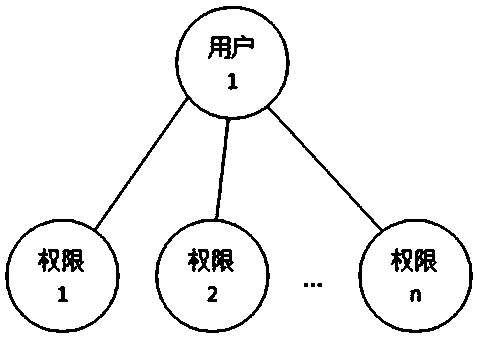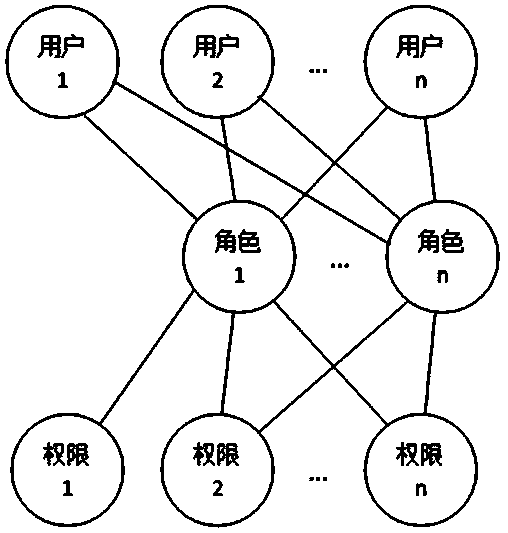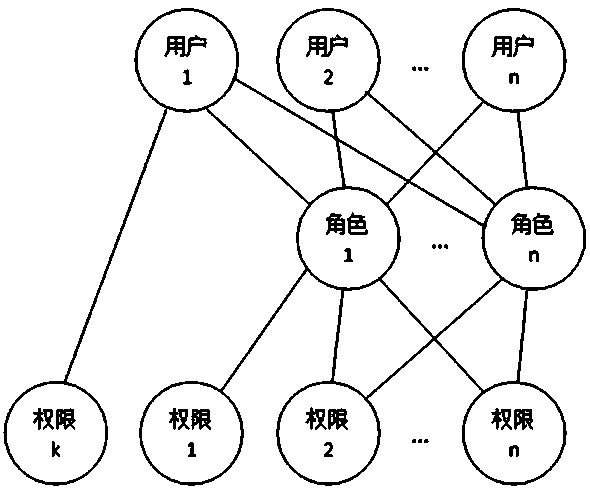One-to-one organization chart generation and application method based on role-to-user
A technology of organizational chart and roles, applied in special data processing applications, instruments, electronic digital data processing, etc., can solve the problems of loss of system users, increase authorization, frequent operations, etc., to reduce the probability of authorization errors and improve efficiency. and reliability, and the effect of improving the efficiency of rights management
- Summary
- Abstract
- Description
- Claims
- Application Information
AI Technical Summary
Problems solved by technology
Method used
Image
Examples
Embodiment Construction
[0039] The technical solutions of the present invention are further described in detail below with reference to the accompanying drawings, but the protection scope of the present invention is not limited to the following.
[0040] like Figure 4 As shown, the method for generating a one-to-one organizational chart for users based on roles includes: S1. Create a department: establish a new department, and select a superior department for the new department if there is an existing department. That is to say, when the newly created department is the first department in the organizational chart (the highest department or organization in the organizational structure), the parent department will not be selected for the newly created department, otherwise, the parent department will be selected for the newly created department. For example, if the existing department has the general manager's office and the marketing department, and the newly-built department is the sales department,...
PUM
 Login to View More
Login to View More Abstract
Description
Claims
Application Information
 Login to View More
Login to View More - R&D Engineer
- R&D Manager
- IP Professional
- Industry Leading Data Capabilities
- Powerful AI technology
- Patent DNA Extraction
Browse by: Latest US Patents, China's latest patents, Technical Efficacy Thesaurus, Application Domain, Technology Topic, Popular Technical Reports.
© 2024 PatSnap. All rights reserved.Legal|Privacy policy|Modern Slavery Act Transparency Statement|Sitemap|About US| Contact US: help@patsnap.com










